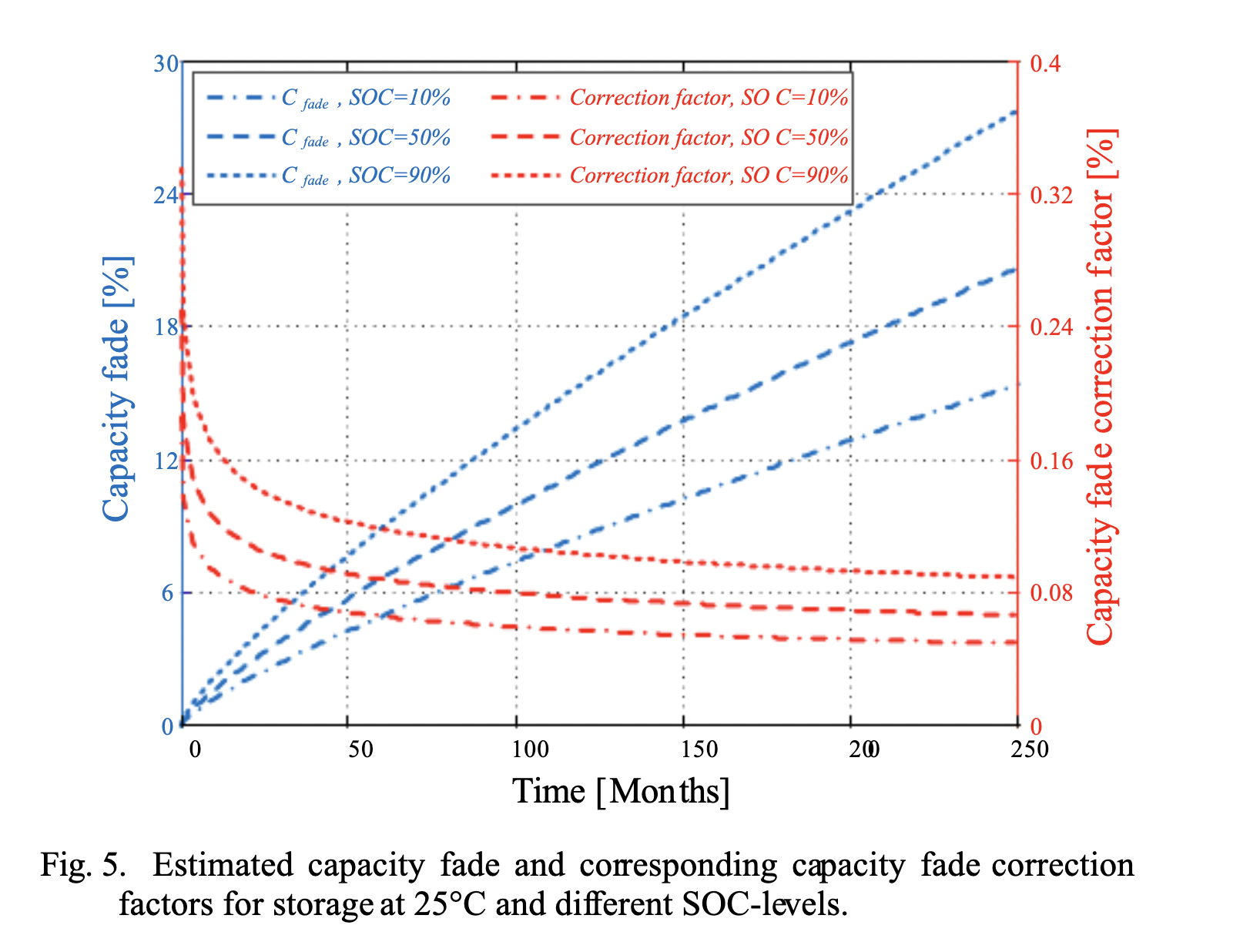 https://www.ipaceforums.co.uk/threads/capacity-fade-vs-power-fade.6794/
https://www.ipaceforums.co.uk/threads/capacity-fade-vs-power-fade.6794/
According to this post capacity fade is defined as the percentage of total capacity left. So I'm assuming it would be calculated like:
(current capacity/original capacity)*100
with the current capacity reducing with use of the battery.
However when comparing it with a capacity fade over time graph:

The % capacity fade is actually increasing over time? Shouldn't we expect this value to decrease over time as the current capacity in the formula decreases?
So I'm thinking that the definition used in the first post is different to the definition of what researchers consider capacity fade. What is the actual formula for capacity fade?
